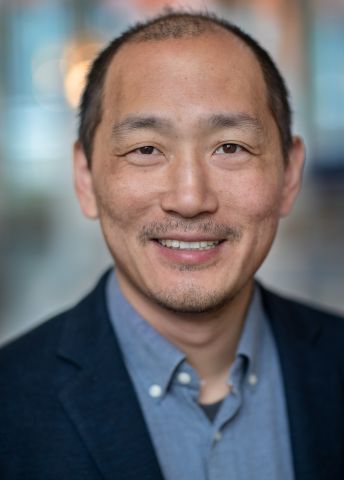
Feng Gao
Professor of optoelectronics
Wallenberg Scholar
Institution:
Linköping University
Research field:
Understanding and applications of emerging semiconductors, including organic semiconductors and metal halide perovskites.
Professor of optoelectronics
Wallenberg Scholar
Institution:
Linköping University
Research field:
Understanding and applications of emerging semiconductors, including organic semiconductors and metal halide perovskites.
He tackles a key challenge of organic semiconductors for future technologies
Semiconductors are a type of material used in almost all electronics. But current silicon-based semiconductors have limitations, where organic semiconductors provide new opportunities. Feng Gao will address a key challenge on the development of organic semiconductors so that they can be used for energy conversion and in technologies that mimic the brain.
Semiconductors can be found in everything from cars and mobile phones to solar cells. Most of today's semiconductor components are made of inorganic crystalline materials, mainly silicon. Although semiconductor technology has improved, it cannot meet the requirements of many new applications.
An alternative is organic semiconductors, which are based almost entirely on carbon and hydrogen. They are flexible, can be manufactured over large areas and are relatively easy to create. In addition, they are lightweight and compatible with living tissue. They can also be coated on almost any substrate, including flexible and transparent materials.
"Organic semiconductors offer a wide range of properties that can increase the number of applications and functions of semiconductor-based devices, which in turn can promote the transformation to a more sustainable society," says Feng Gao.
Modulators to affect doping
Like inorganic semiconductors, the applications of organic semiconductors rely heavily on something called doping, i.e. substances added to the material to increase its conductivity. There are two types: p-doping, an excess of positive charge carriers, and n-doping, an excess of negative charge carriers.
However, the development of n-doped organic semiconductors is far behind the p-type.
To bridge the gap between the n- and p-types, Feng Gao will use different so-called modulators that affect the doping reaction. The modulators designed by Gao's research team consist of ionic liquids.
Applications for the n-doped materials will be investigated by Feng Gao in two main areas - energy conversion and neuromorphic technologies. The energy conversion technologies in this case include solar cells, LEDs and organic thermoelectric generators.
Neuromorphic technologies involve manufacturing computer components that mimic the functions of the brain. The technology holds promise for overcoming the limitations of today's computers in terms